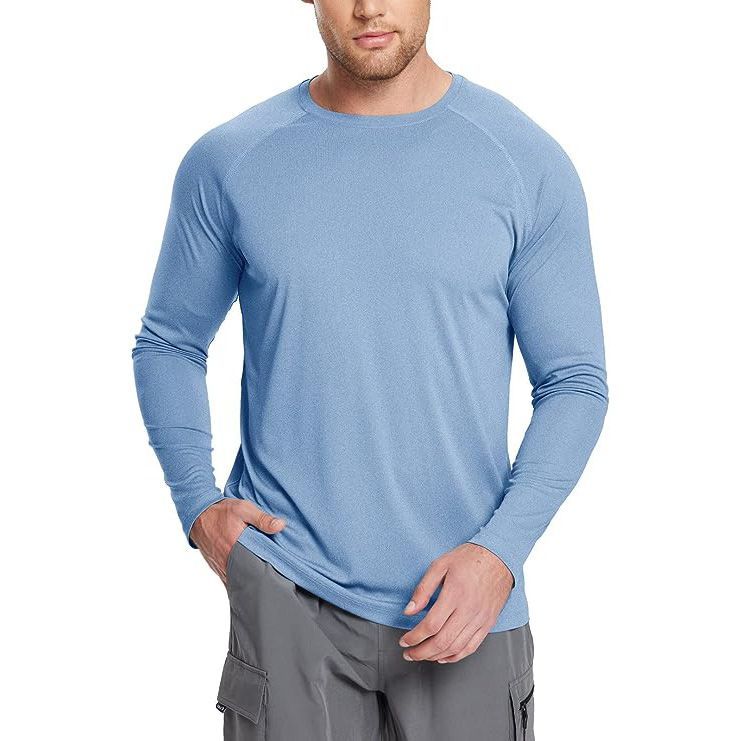Ever wonder if that old cotton tee is enough to keep the sun off your back? Spoiler: probably not! Let’s dive into how sun shirts stack up against regular t-shirts for UV protection — and what actually matters when picking your go-to outdoor shirt.
What’s UPF, Anyway?
Think of UPF (Ultraviolet Protection Factor) as SPF, but for clothes. Here’s the deal:
- UPF 50: Only 1/50th of the sun’s rays get through (so, about 98% blocked).
- Regular cotton t-shirt: Often around UPF 5 (not great).
- Sun shirts: Usually UPF 30-50+, specifically made to block UV, like the Sunnyside Threads outdoor sun shirts.
Pro tip: You can’t just eyeball a shirt and guess its UPF. Always check the label if you’re serious about protection.

Fabric Matters: It’s Not Just What, But How It’s Made
Sun shirts are typically made from synthetic stuff like polyester or nylon:
- Tightly woven to keep UV out.
- Usually stay protective even when wet.
Regular t-shirts (especially cheap cotton ones):
- Looser weave, more gaps for UV to sneak through.
- Lose even more protection when wet (hello, sunburn).
Bottom line: A thin, tightly woven sun shirt can beat a thick, loose cotton tee every time.
Does Color or Fit Make a Difference?
You bet!
- Darker colors (navy, black, deep red): Absorb more UV, offer better protection.
- Light colors (white, pastels): Reflect light but can actually let more UV through.
And about fit:
- Loose fits: Create a buffer zone, keep fabric from stretching, and block more UV.
- Tight fits: Stretch the fabric, open up the weave, and let in more rays.
So, go for a dark, loose-fitting sun shirt for top-notch coverage.
Sweat, Breathability & Staying Comfortable
Let’s face it: you’re gonna sweat if you’re outside. Here’s why that matters:
- Sun shirts: Designed to wick moisture and dry fast. Stay cool, stay protected.
- Cotton t-shirts: Soak up sweat, stay wet, get clingy, and actually lose UV protection when damp.
Takeaway: If you want to stay comfy and safe, moisture-wicking synthetics are the way to go.
How Long Will Your Shirt Last?
Sun shirts aren’t just tough — they’re built for the outdoors:
- Stronger fabrics: Resist tears and stretching, even after lots of use.
- Colorfast: Keep their color (and protection) after tons of washes. Faded shirts = weaker shirts.
- Wear-resistant: Don’t thin out as fast, so they keep blocking UV longer.
Regular tees, especially cheap ones, get thin and faded quickly — which means less and less protection over time.
When Should You Pick a Sun Shirt?
If you’re:
- Hiking, fishing, or out on the water all day,
- Spending several hours in direct sunlight,
- Worried about sunburn, skin damage, or just want to play it safe,
…then a sun shirt is 100% the smarter choice. Regular tees just can’t keep up when it comes to reliable, all-day sun protection.
TL;DR
- Sun shirts: Engineered for UV protection, stay protective when wet, last longer, and keep you cooler.
- Regular t-shirts: Minimal UV protection, especially when light, loose, or wet.
- Best combo: Dark-colored, loose-fit, moisture-wicking sun shirt. Check for that high UPF label!
So next time you’re gearing up for a sunny day outside, don’t just grab any old t-shirt — your skin will thank you!